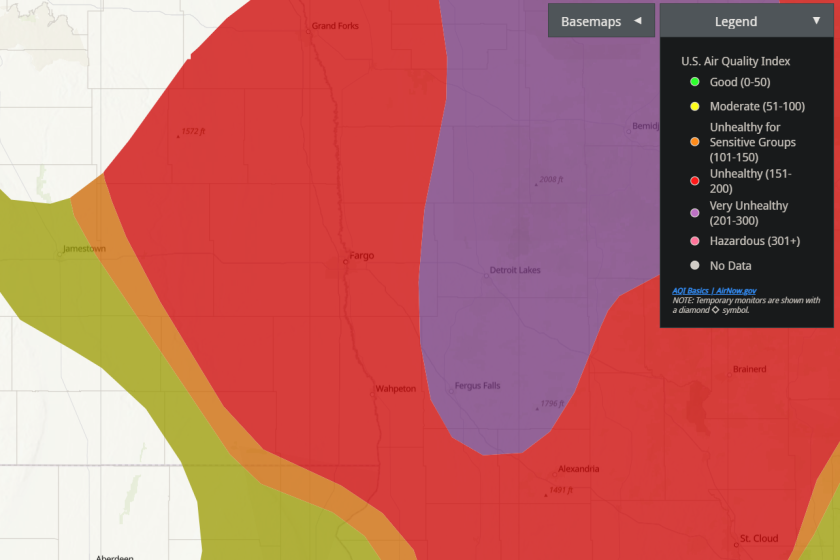Heavy ground-level smoke from wildfires in central Canada has created hazardous air quality conditions across North Dakota and Minnesota, prompting health warnings from medical professionals. As a result, the Air Quality Index (AQI) in Fargo has reached concerning levels, affecting the health of residents, particularly those with pre-existing respiratory conditions.
Dr. Christopher Anderson, an emergency physician at Essentia Health, voiced serious concerns about the impact of the smoke. “It’s harmful for everyone to some degree, but we especially worry about individuals with asthma, chronic obstructive pulmonary disease (COPD), other chronic lung conditions, very young people, and older adults,” he stated. The AQI ranges from 0 to 500, with lower numbers indicating cleaner air. Currently, Fargo’s AQI is positioned in the red to pink range, indicating unhealthy conditions for sensitive groups.
According to AirNow.gov, individuals with asthma, as well as those with heart and lung conditions, are advised to limit outdoor activities. Dr. Anderson emphasized that all residents, regardless of health status, should minimize strenuous outdoor exertion until the smoke dissipates. “The heavier or faster your breathing, the more air you take in, and the more particles you inhale,” he explained. “So, keeping activity levels down is crucial when outside.”
While some residents are heeding these warnings, others are continuing their daily routines despite the challenges posed by the smoke. Leandro Casas, a performer at the Red River Valley Fair, has been singing for audiences despite the poor air quality. “You learn how to be flexible, you know? It’s not the most comfortable thing, but as an entertainer, my goal is to bring joy,” Casas remarked, reflecting on the resilience required to perform under such conditions.
Dr. Anderson cautioned that individuals who experience symptoms such as coughing, wheezing, or shortness of breath should seek refuge indoors. The air quality alert affecting all of Minnesota is expected to remain in effect until 9 a.m. on July 14, 2023.
As residents navigate the challenges of compromised air quality, the health implications remain a pressing concern for many, underscoring the need for continued awareness and precautionary measures in affected areas.
